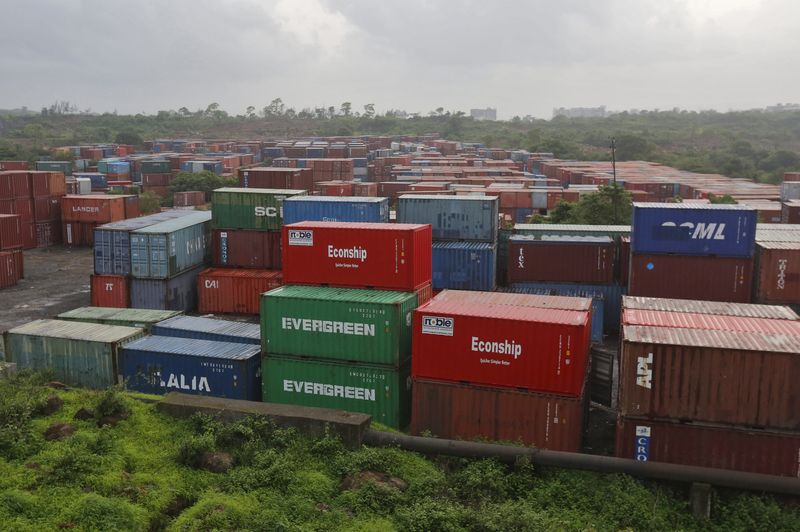By Vivek Mishra and Anant Chandak
BENGALURU (Reuters) - India's current account balance likely turned positive in January-March, marking the first quarterly surplus in nearly two years thanks to a narrower trade deficit and an increase in services exports, a Reuters poll found.
The latest survey of 22 economists showed the current account balance likely recorded a surplus of $3.3 billion, or 0.4% of gross domestic product (GDP), in the last quarter of the 2022/23 fiscal year.
That would be a significant improvement from the preceding quarter's deficit of $18.2 billion, or 2.2% of GDP. Forecasts ranged widely, from a deficit of $5.0 billion to a surplus of $7.8 billion.
"While we expect the merchandise trade deficit to narrow, led by moderating global commodity prices, the invisibles trade balance should remain steady at previous quarter levels, with a pick-up in services exports," said Upasana Chachra, chief India economist at Morgan Stanley (NYSE:MS).
"On the capital account front, we expect foreign flows to slow. With regard to the overall (balance of payments) ... we anticipate the surplus to remain largely steady, similar to previous quarters' levels."
The balance of payments was forecast in a surplus of $9.8 billion last quarter, the poll showed, compared with $11.1 billion in the previous three-month period.

The current account deficit (CAD) was expected to average -1.5% of GDP this fiscal year and -1.8% next, compared with -2.0% in the fiscal year just ended, a separate Reuters poll showed last week.
"With oil prices lower, the trade deficit is likely to shrink, ensuring the CAD narrows further," wrote Prasenjit K. Basu, chief economist at ICICI Securities.